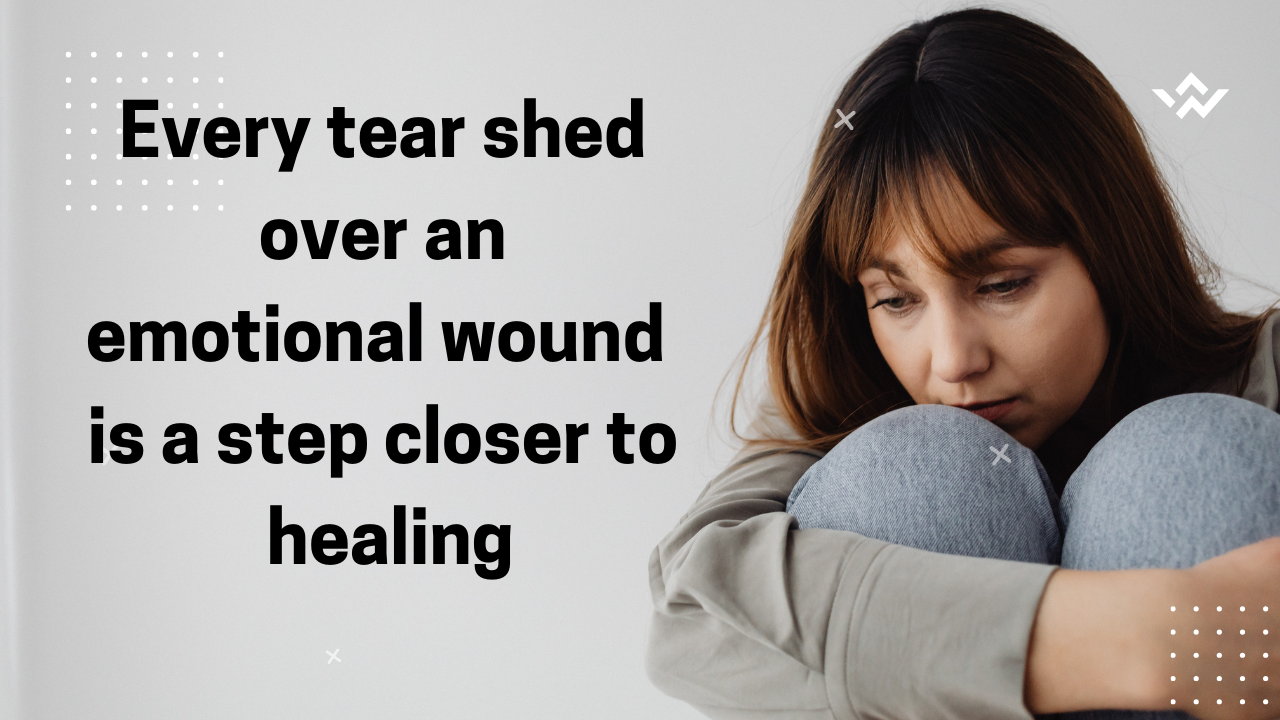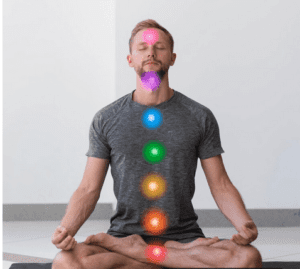Emotional wounds are deeply rooted scars imprinted in our souls due to major heartbreaks—wounds that linger beneath the surface. A person carrying emotional wounds bears a heavy burden in silence, unable to express their pain. They often mask this sorrow with a smiling face, concealing the depth of their struggle. However, it is possible to heal emotional wounds through self-awareness, self-compassion, and inner work. Acknowledging the pain, allowing oneself to grieve, and seeking support can gradually bring healing, transforming past wounds into sources of strength and wisdom.
Table of Contents
What causes emotional pain?
It could stem from the loss of someone close to your heart, rejection, betrayal in a love relationship, childhood neglect, or emotional isolation. This pain can leave you drowning in grief and loss. People often neglect these emotional wounds because it’s easier to hide them than confront them. On the outside, they may appear perfectly normal, but on the inside, they are distressed and struggling.
They master the art of hiding their feelings, always trying to adjust without expressing their emotional needs. Though they may seem strong, they are incredibly vulnerable, emotionally weak, and fearful of facing similar painful situations.
As a result, they tend to avoid reality, believing that hiding is easier than confronting the truth. Instead of taking steps to heal themselves, they seek external emotional support, which often leads to their biggest illusion—that someone else can heal what lies within.
Emotional wounds are like an invisible weight of heartbreak, an unspoken ache that shapes behavior. These individuals grapple with fear, insecurities, and self-doubt. They feel unworthy of love, unable to trust others easily. When someone truly loves them, they may sabotage the relationship out of fear of rejection or abandonment. This creates emotional barriers to shield themselves from further pain. Healing emotional wounds begins with self-awareness, self-love, and the willingness to release the past, allowing space for trust and happiness to thrive once again.
Why do emotional wounds feel unforgettable?
Emotions are deeply connected to the subconscious mind, which processes and operates through feelings. When someone experiences a hurtful situation, they are overwhelmed by heavy, unforgettable emotions. This grief leaves a profound negative impact on their subconscious.
The subconscious mind stores habits, deep beliefs, and memories, all of which are tied to emotions—whether positive or negative. Your circumstances, environment, relationships, and personal experiences play a significant role in shaping your belief system, which becomes deeply rooted in the subconscious. Emotional wounds are a form of deeply ingrained hurtful memories, creating a negative belief system tied to specific situations.
Healing emotional wounds is the only way to cure these wounds and erase them from the subconscious mind.”
Steps to Heal Emotional Wounds
I’m going to share the tips from my personal healing journey, which I followed to heal my emotional wounds. All the steps are authentic and well-researched.
1. Acceptance
Imagine you’re hungry but hesitate to ask for food. How does that feel? Would you ever be able to get relief from hunger? No, because until you recognize and accept what you feel emotionally, you won’t be able to heal your emotional wounds. You first need to accept that, “Yes! I’ve had a bad experience that caused me distress, and now I want to completely release it and become a new version of myself.” Healing begins with acknowledgment, allowing you to let go of the past and embrace inner peace.
2. Journaling
I believe journaling is the best way to release your pain when you can’t share it with anyone else. Personally, I used to write my most painful and disgusting memories on paper and then flush them away. It gave me instant relief. Afterward, I would write the five most positive aspects of those painful memories. This practice helped me heal emotional wounds by transforming pain into wisdom.
For example: If someone cheated on you and you now struggle to trust others, try to see the positive side of the situation. Perhaps God removed that person from your life so you can be ready for something better. In this way, you can replace your bad memories with positive perspectives about the situation, allowing yourself to heal emotionally and move forward with strength.
3. Increase Your Self-Love
My lovely readers, you can’t imagine how self-love can change your life. This has been the best practice I’ve experienced in my whole life. Now, I don’t need validation from anyone. It has increased my beauty, intelligence, and self-compassion—everything I was once seeking from outside.
Healing emotional wounds through self-love has allowed me to embrace my true self and release the pain from the past. Try to improve yourself, change your habits, and grow. Learn new things and be happy with yourself. Do what you love to do. Through self-love, you not only transform your life but also heal emotional wounds, bringing you closer to the happiness and peace you deserve.
4. Connect with Your Friends and Loved Ones
People who are deeply wounded often isolate themselves from others. While isolation isn’t bad if it’s for genuine reasons like healing, meditation, or spending time with nature, it becomes problematic when it’s used to avoid engaging with the world. Even I don’t like crowds, but I do so for a good reason. If you feel peaceful and healed being alone, that’s fine, but don’t use isolation as an escape because you’re not confident enough to engage with the world. Heal emotional wounds by connecting with trustworthy people and sharing your feelings. If you feel comfortable, sharing your painful memories can help release them. Spend time with those who truly love you, allowing their support to guide you toward emotional healing.
5. Affirmations
Affirmations help reprogram your subconscious mind and replace negative memories with positivity, aiding in the process of healing emotional wounds. However, unconscious affirmations won’t help much and can backfire if done with doubt. Be confident and trust that the universe is working on your behalf. When you do affirmations with full acceptance, they will work for you, gradually helping you heal from past pain and embrace a more positive mindset.
6. Meditation
Meditation connects you with a higher power, giving you relief and peace of mind. It heals your deep emotional wounds from the root. In a meditative state, you can easily access your subconscious and reprogram it with positive affirmations, aiding in healing emotional wounds. Meditation also connects you with spirituality and universal guidance.
Here’s something I used, and it worked 100% for me: While meditating, pray to divine powers, accepting your painful memories and asking for help in releasing them. Call upon divine forces to help you release the pain and bring forth your authentic self, allowing you to fully heal emotional wounds and transform your life.
7. Connect with Nature
Nature is a natural healer. When you spend time in the presence of greenery, birds, lakes, or hills, you receive a sense of peace. Natural elements provide everything selflessly, and being around them fills you with positivity, inner peace, and healing. Spending time in nature can also help heal emotional wounds by allowing you to release suppressed emotions and find comfort in its embrace. Share your grief and painful memories with nature. They won’t tell anyone, and you will feel relief, as if the burden has been lifted from your heart.
8. Help Others
Helping others provides soul satisfaction. Don’t believe me? Try it once! You’ll feel happy and content from the inside, and it will help you heal emotional wounds by shifting your focus from pain to purpose. Do you know about karma? When you give selflessly, it will come back to you tenfold, filling your heart with joy and inner peace, and assisting in your emotional healing.”
Conclusion
In conclusion, healing emotional wounds is a transformative journey that requires patience, self-awareness, and the willingness to embrace change. Whether through nature, helping others, or practicing self-love, each step you take toward healing is a step toward a more fulfilled and peaceful life. Remember, emotional wounds don’t have to define you. By accepting your pain, reprogramming your subconscious, and seeking guidance from higher powers, you can heal and grow stronger. The process might take time, but with consistent effort and belief in yourself, you will emerge whole, empowered, and ready to embrace all that life has to offer. Heal emotional wounds and reclaim your inner peace.




